20. Saboteur (1942)
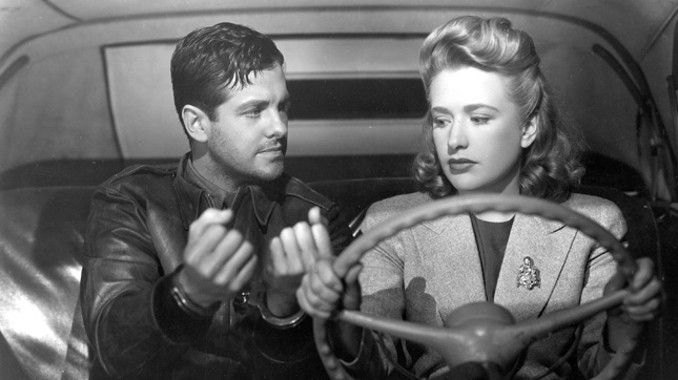
“The 39-Steps” was virtually unknown in the US. In Britain, it was huge! It made Hitch a household name. Whenever someone made a thriller, it was not compared to Agatha Christie. Despite the fact that this was one of the the US’s first introductions to the Hitchcockian thriller, he was clearly bored with it. The legendary ending seems to be the only thing that interested him. Sad, really, because this recycling of “The 39-Steps” is actually quite entertaining. Especially in the scene where the circus entertainers do their best (and worst) to hide our heroes. An admirable film, if only a little flimsy.
19. The Man Who Knew Too Much (1956)
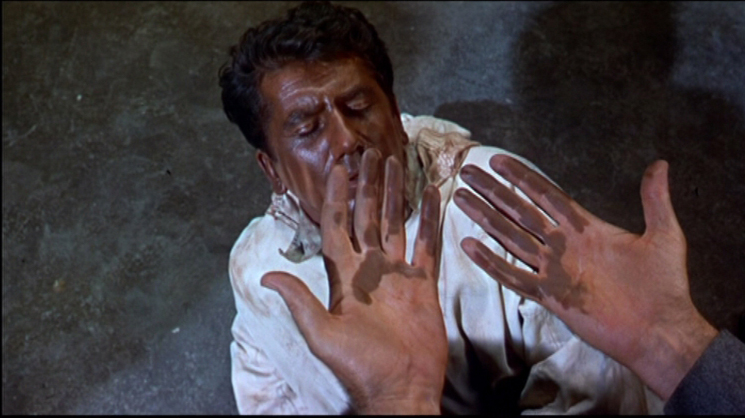
Hitch is one of the only filmmakers who ever got to remake his own film. What is fascinating about Hitch’s remake is that he not only changes the gender of the kidnapped child but, he also shifts the focus on rescuing the child from the father to the mother. This landed Doris Day an Oscar nomination. Not for acting, but for singing “Que Sera Sera”! It won: one of the only Oscars ever awarded to a Hitchcock film. This lack of recognition, combined with a huge amount of financial success, is probably the reason when the Academy gave Hitch an honorary Oscar, near the end of his life, he accepted it, walked to the mic, said “Thank you”, and walked off.
18. Dial “M” for Murder (1954)
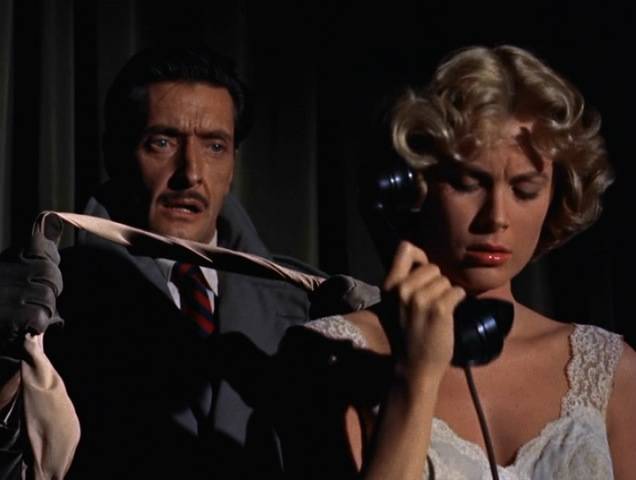
Ever the innovator, Hitch wanted to experiment with 3-D. If this doesn’t tell you that Hitchcock was an experimental filmmaker, nothing will. Why would a creator of thrillers want to experiment with a technology usually reserved for science fiction films? Because of that shot of Grace Kelly reaching to grab the scissors. That’s the whole reason he wanted to make the film with cumbersome 3-D. He was realizing he could break the fourth wall. This was his first attempt at it. “Psycho” would be his greatest statement about this.
17. The Trouble With Harry (1955)
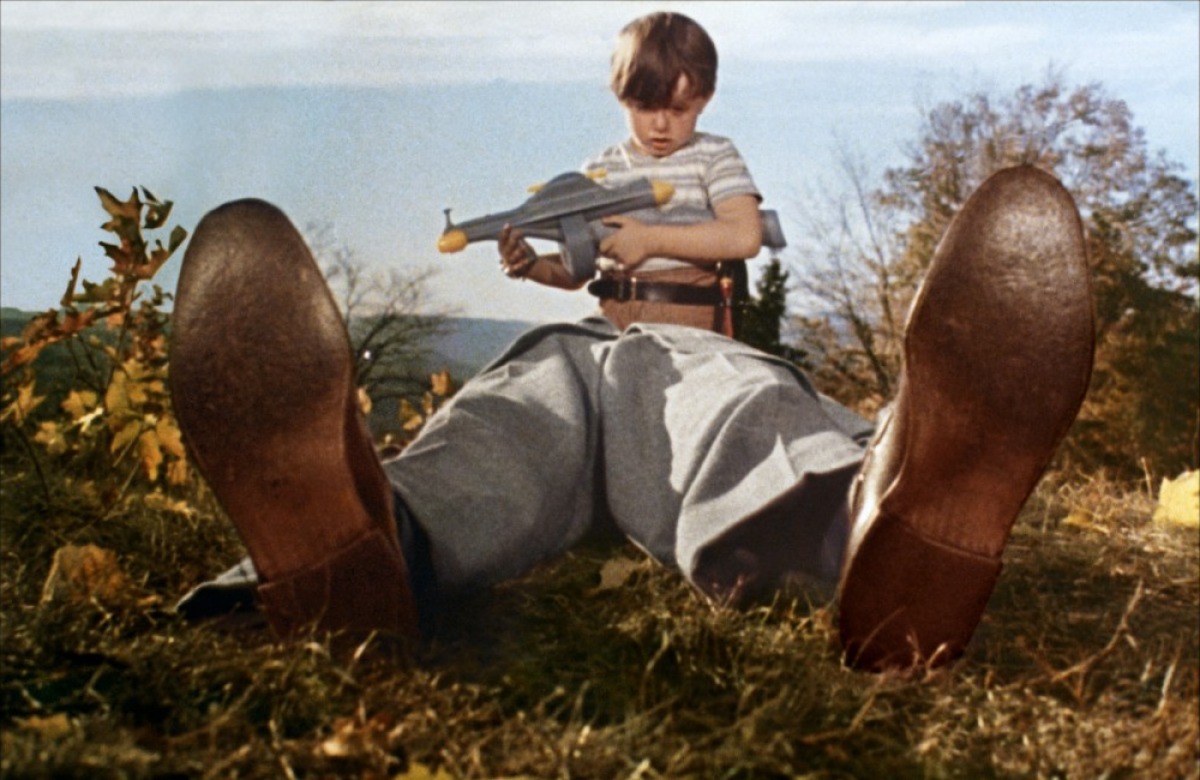
Even though most would not agree, this is the only Hitchcock comedy. He did make “Mr. and Mrs. Smith” but, with this film, Hitch revealed his true sense of humor. It is very macabre, and dark but still, very funny: A body that won’t stay buried. Everyone, in the cast digs up this dead body, believing they killed him. If there is a more perfect Hitchcockian comedy premise, I don’t know what is. We also have Hitchcock to thank for Shirley MacLaine being in our lives. This is her film debut.
16. Suspicion (1941)
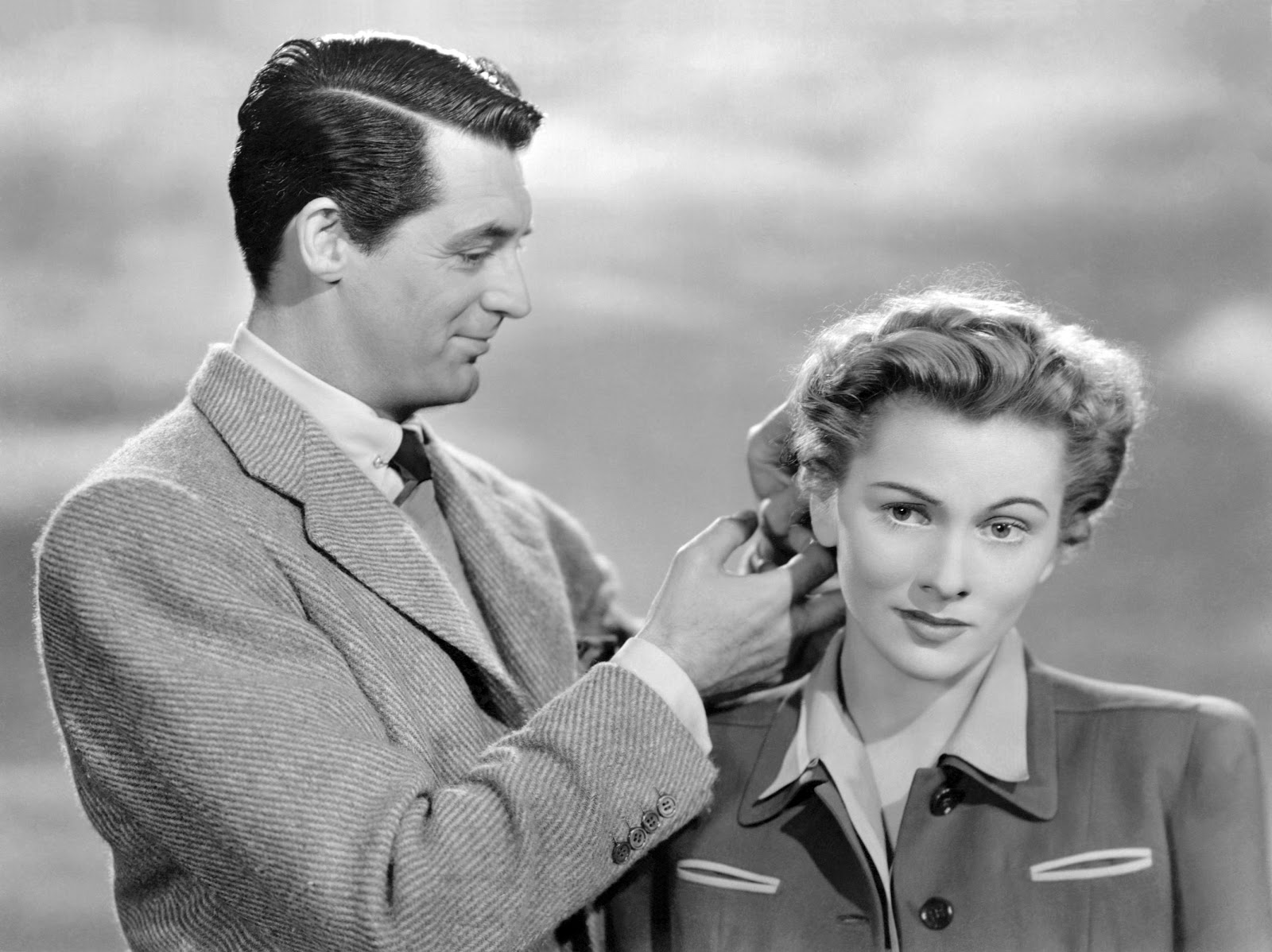
Did he? Or Didn’t he? It is the tagline of virtually every Hitchcock film. This is a film about a woman who marries a man, whom she begins to suspect is trying to kill her. What is really interesting about this film is not “Will he, or won’t he”? It’s “What did the studio let you do, and what did they not let you do?” In the original version, Cary Grant is a murderer. But, Cary was such a bankable asset, they couldn’t risk tarnishing his reputation. So, they tacked on a wimpy ending. Worthy of note, this is Joan Fontaine’s Oscar win. She missed out to Ginger Rogers the year before because of “Kitty Foyle”. Fontaine did deserve the Oscar for “Rebecca”, but that’s how it goes.
15. Rebecca (1940)

This film is the reason Hitch was brought to Hollywood. David O. Selznick felt invincible because of “Gone With the Wind”, and the eventual success of “Rebecca”. The problem is with great success can come great arrogance. Selznick was a bully, and when he had lesser talent, he made lesser films. “Gone With the Wind” had four incredible directors, who were all systematically fired, when they ran into difficulties. Now, you’ve got Hitchcock. Selznick finally had a director who was wildly more talented than Selznick could ever hope to be. Because Selznick micro-managed “Gone With the Wind”, and believed he could do the same with Hitch.
Legendarily, Hitch shot the film so that it could only be edited in one way. In other words, he was going to keep control of the film no matter what Selznick wanted: “I’m the Director, you’re the producer. Do your job, and leave me alone”. This drove Selznick completely crazy, and their relationship never recovered.
14. Marnie (1964)

I have a certain amount of loathing for Tippi Hedren but, her performance as Marnie is magnificent. Sean Connery is also quite fascinating. Connery’s career in this year, 1964, exploded. “Goldfinger” was released 2 months later. Because he had James Bond, he did not have to worry that “Marnie” was a critical and box office disappointment. I believe everyone should see “Marnie”. It deals with emotional trauma, and how people cope with it. It does have one unfortunate drawback.
Its critical and financial failure triggered Hitch to withhold several films from world distribution for over 20 years; including “Marnie”, “Rope”, “Rear Window”, “The Man Who Knew Too Much”, and “Vertigo”. What is so remarkable about those films? They are not his biggest box-office hits, except “Rear Window”, and “The Man Who Knew Too Much”. My guess is they must have had immense personal value for him. He might have decided that “Marnie’s” failure meant the public were not worthy to rewatch those films. If true, it says a lot about the artist.
13. The Wrong Man (1956)
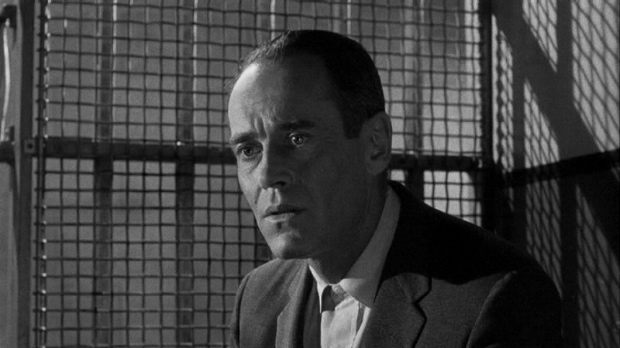
The only film Hitch made based on a true story, it was also the only time he worked with Henry Fonda. They may have had creative differences but, I think they were a match made in heaven. The Fonda played the wide-eyed innocent, as in the Jimmy Stewart mold. The year is 1956, when Hitchcock was at his most influential.
As far as I know, this is one of the earliest true-crime films. Correct me if I’m wrong. It has a slow burn quality that gets under your skin. The other interesting thing to note is Vera Miles. Her performance is beyond perfect. She was Hitch’s original choice to play Madeleine in “Vertigo”. Unfortunately, Hitch’s wife got sick, and Vera became pregnant. This film gives you a glimpse as to how “Vertigo” might have been different with her in the lead.
12. The Birds (1963)
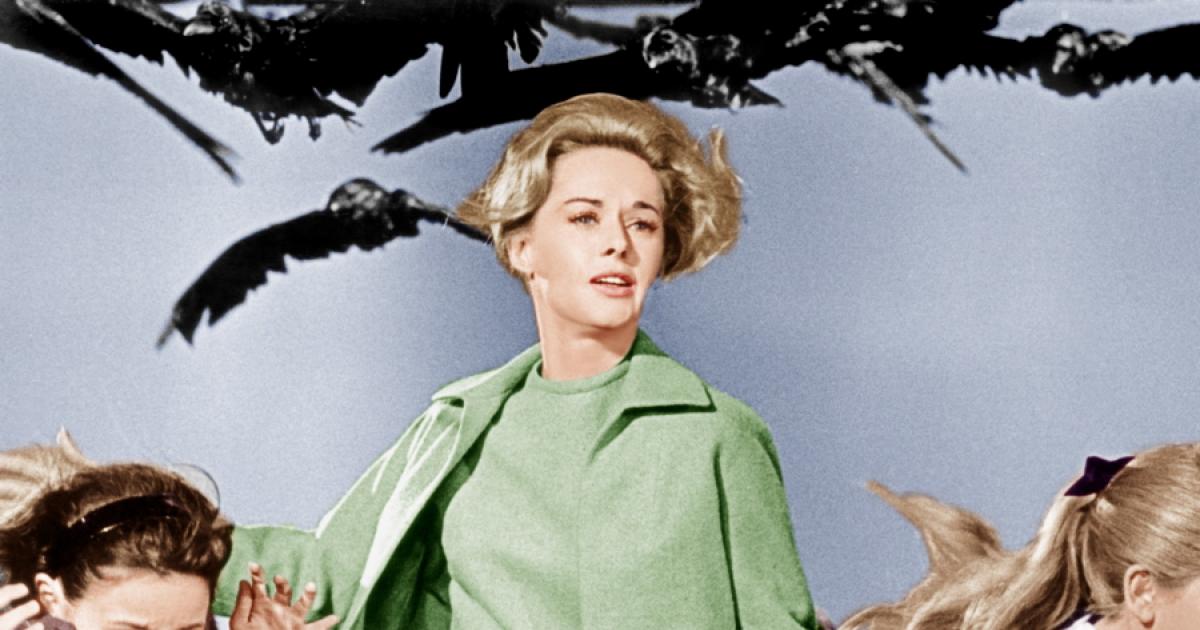
“The Birds” is Hitchcock’s vision of the apocalypse, which suits my wife just fine, because she hates birds. I don’t mean hates them, I mean HATES THEM! When she sees a bird on screen, more frequently the words, “how would you cook it?” escape her mouth. This is the first of two collaborations with the aberration that is Tippi Hedren. Hedren’s accusations that Hitch tortured her are complete hearsay. Yes, it was a grueling shoot, and Hitchcock was no saint, but if he was serially abusive, wouldn’t someone have mentioned it? What did Grace Kelly have to lose? She was a Princess. Hollywood was, and still is, a “boy’s club”. That seems to have kept these accusations alive.
“The Birds” is an astonishing achievement, which wowed Cannes, and America almost completely ignored. It was a critical and box-office bomb. Maybe everyone in the US was sick of doom-and-gloom, given the Cuban Missile Crisis, the Bay of Pigs, and the later assassination of JFK had something to do with it. Imagine if those events had not happened and JFK was still alive. Maybe this film could have found an audience.
11. Foreign Correspondent (1940)
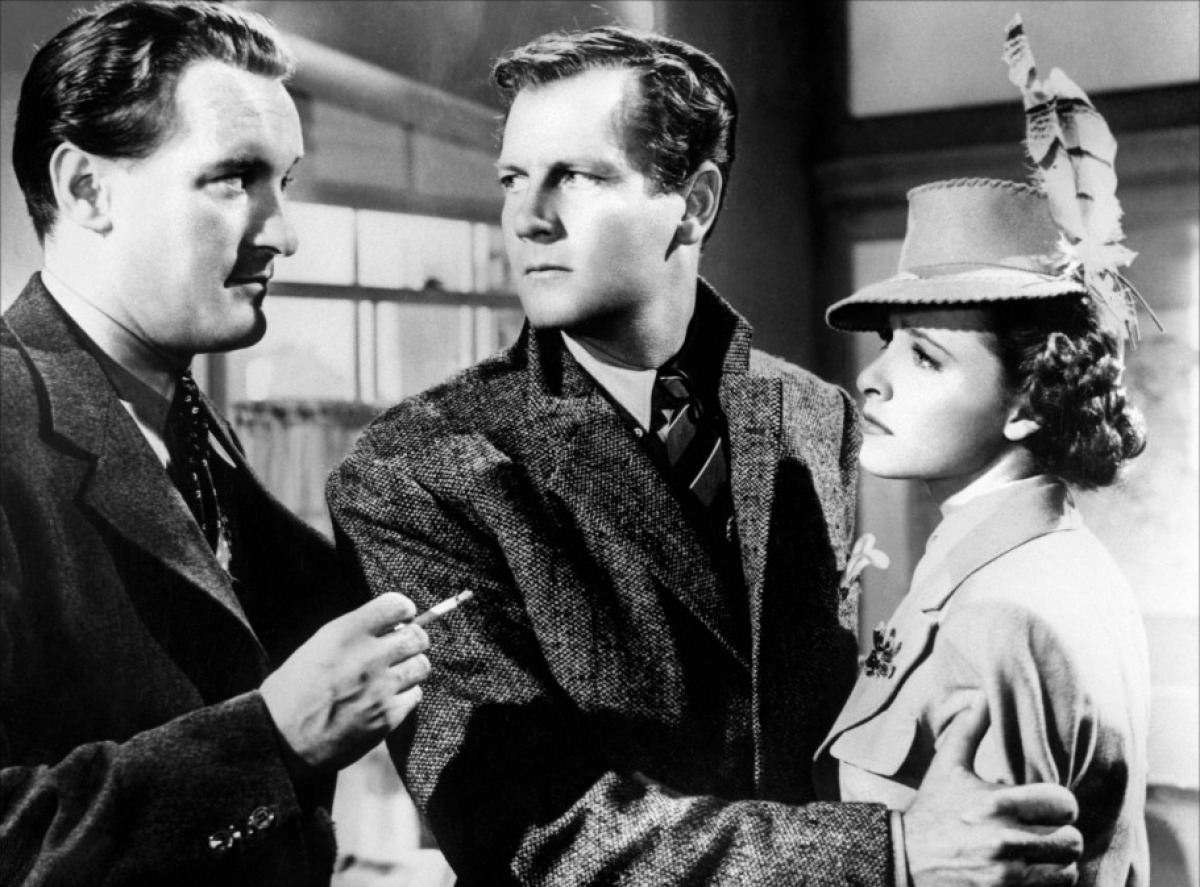
I don’t want to make this all about George Sanders…okay, this is all about George Sanders. To say that George stole every scene he was ever in is a massive understatement. I believe he, and Hitch, only worked together once because of this film. I imagine Sanders ability to dominate the screen drove Hitch crazy. This was Hitch’s last official British film. It is a fairly by the numbers Hitchcock thriller until Sanders shows up. Oh, it’s technically flawless, superb in structure, and sublime in its final resolution. But, its too mechanical. When George shows up, the whole screen lights up. Magnificent!